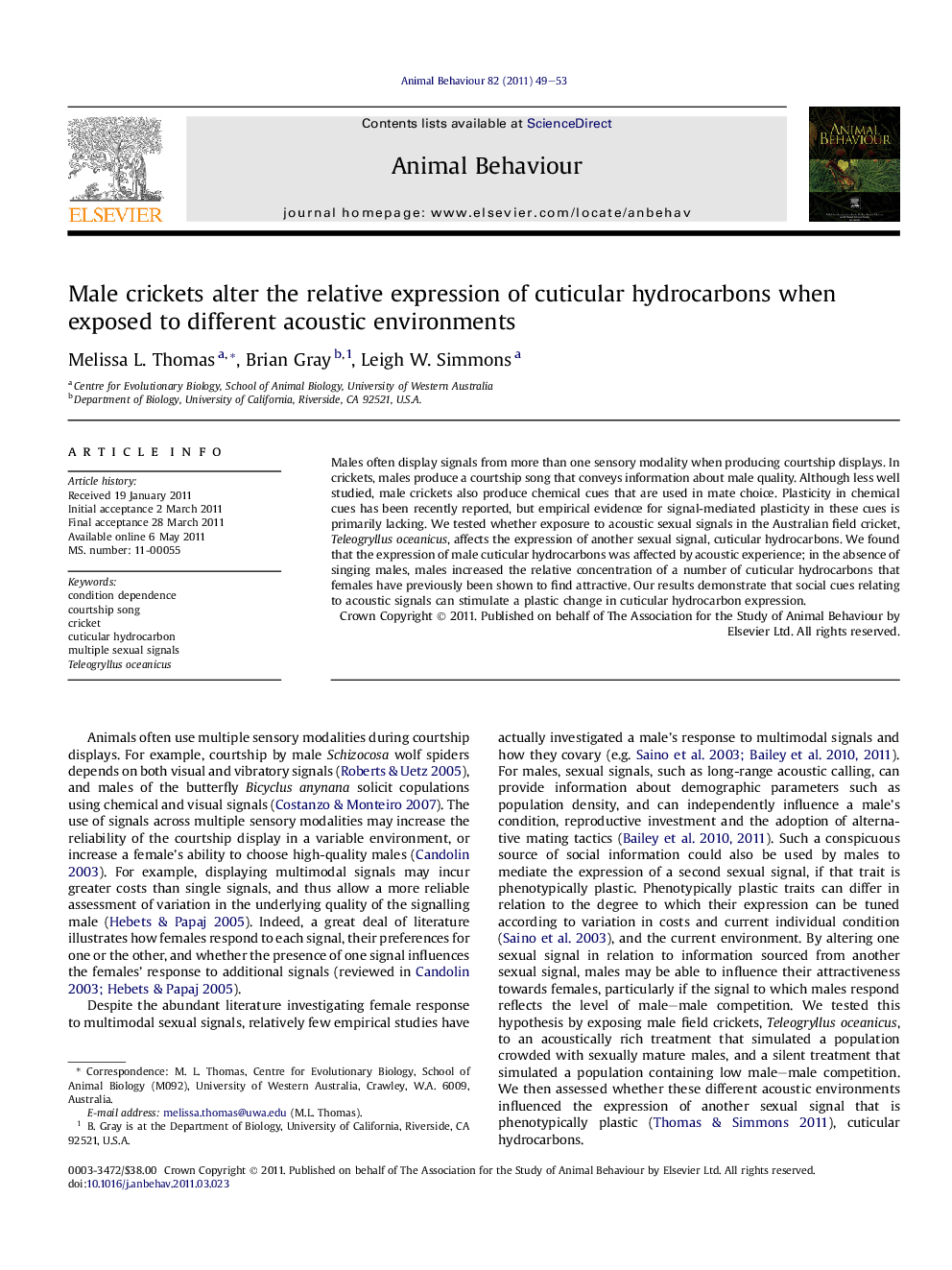| Article ID | Journal | Published Year | Pages | File Type |
|---|---|---|---|---|
| 2417024 | Animal Behaviour | 2011 | 5 Pages |
Males often display signals from more than one sensory modality when producing courtship displays. In crickets, males produce a courtship song that conveys information about male quality. Although less well studied, male crickets also produce chemical cues that are used in mate choice. Plasticity in chemical cues has been recently reported, but empirical evidence for signal-mediated plasticity in these cues is primarily lacking. We tested whether exposure to acoustic sexual signals in the Australian field cricket, Teleogryllus oceanicus, affects the expression of another sexual signal, cuticular hydrocarbons. We found that the expression of male cuticular hydrocarbons was affected by acoustic experience; in the absence of singing males, males increased the relative concentration of a number of cuticular hydrocarbons that females have previously been shown to find attractive. Our results demonstrate that social cues relating to acoustic signals can stimulate a plastic change in cuticular hydrocarbon expression.
